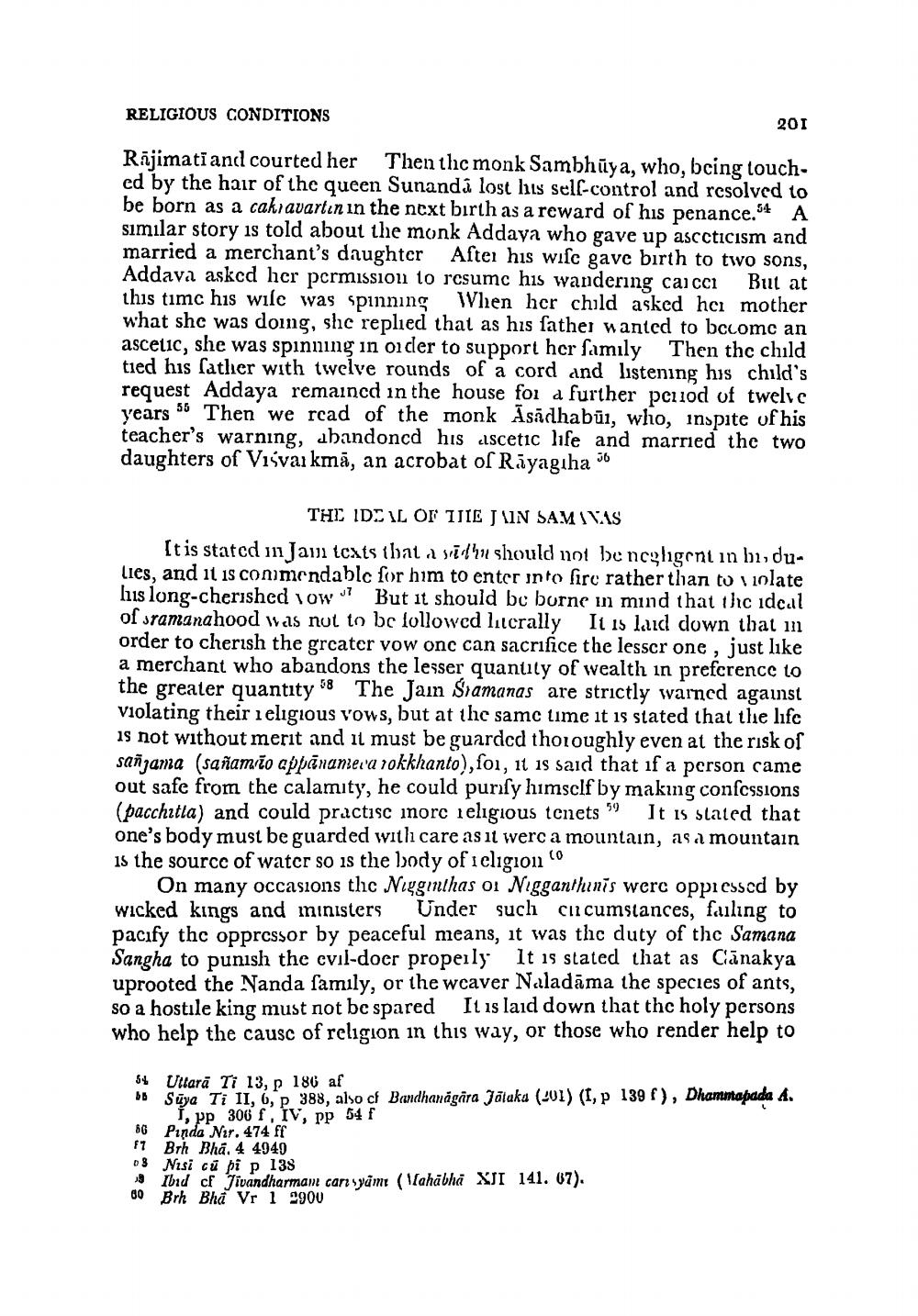________________
RELIGIOUS CONDITIONS
201
Räjimati and courted her Then the monk Sambhūya, who, bcing touched by the hair of the queen Sunandā lost his self-control and resolved to be born as a cakravartın in the next birth as a reward of his penance.54 A similar story is told about the monk Addaya who gave up asccticism and married a merchant's daughter After his wife gave birth to two sons, Addava asked her permission to resumc his wandering caicci But at this time his wilc was spinning When her child asked her mother what she was doing, she replied that as his father wanted to becomc an ascelic, she was spinning in order to support her family. Then the child tied his father with twelve rounds of a cord and listening his child's request Addaya remained in the house foi a further period of twelve years 56 Then we read of the monk Āsādhabūs, who, inspite of his teacher's warning, abandoned his clscetic life and married the two daughters of Visvai kmā, an acrobat of Rāyagıha 6
THE IDOL OF TJIE JUIN SAMITAS It is stated in Jam tcxts that a svīdhu should not be ncgligent in bı, dulies, and it is commendablc for him to enter into fire rather than to colate huis long-cherished vow? But it should be borne in mind that thic ideal of sramanahood was not to be followed litcrallyIt is land down that in order to cherish the grcater vow one can sacrifice the lesscr one, just like a merchant who abandons the lesser quantity of wealth in preference to the greater quantity 58 The Jain Sramanas are strictly warned against violating their i eligious vows, but at the same time it is stated that the life is not without merit and it must be guarded thoroughly even at the risk of sanama (sañamião appānanze a rokkhanto), foi, it is said that if a person came out safe from the calamity, he could pursy himself by making confcssions (pacchetla) and could practise inorc religious tenets59 It is stated that one's body must be guarded with care as it werc a mountain, as a mountain is the source of water so is the body of icligion
On many occasions thc Niggithas oi Nigganthunīs were oppressed by wicked kings and ministers Under such cucumstances, failing to pacify the oppressor by peaceful means, it was the duty of the Samana Sangha to punish the cvil-docr properly. It is stated that as Cānakya uprooted the Nanda family, or the weaver Naladāma the species of ants, so a hostile king must not be spared It is laid down that the holy persons who help the causc of religion in this way, or those who render help to
54 Uttară Ti 13, p 186 af BD Süya Ti II, 6, p 388, also cf Bandhanagara Tătaka (201) (1, p 139 ), Dhammapada 4.
1, pp 306 f, IV, pp 54 f 16 Pinda Nir. 474 ff 17 Brh Bha. 4 4949 03 Nisi cú pi p 138 - Ibrid cf Jivandharmam cari syam (ahābha XJI 141. 07). 80 Brh Bha Vr 1 2900




